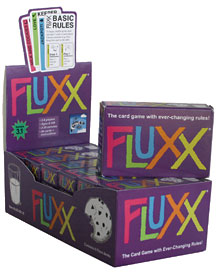
The Interactive Fiction competition has ended (
here the final results), and I casted my votes! My preferred games was
Möbius, which I found very interesting, as you can't write such a story in an uninteractive fashion, and
Floatpoint, by Her Majesty Emily Short. It contains a great introduction to IF -- I'm an absolute beginner -- and it ahs a very friendly hint mode. However, I found it a bit too difficult for me, and after one hour playing I wanted to read the walkthrough.
I tried to play to
Requiem, good atmosphere on start, but how I can restore a saved game?!? This stupid limitation prevented me to play it at all. The worst I tried was
Bible Retold: I find very unfunny to play a story that I already know, and a bit unrespectful play in such a way Jesus' life.
An other great game was
Moon-Shaped, an interesting mix. It started as a very famous child story, but don't believe it! The more you go along, the more it goes complicated, frightening, and adult... but with (at least one) happy end. With this game I learned that if an object is closed, sometimes it happens it's not closed... the same place may appear very different if you have a higher level of consciousness. I don't like to have a complex map when playing, and in the last part it is a bit difficult but well written. I used the walkthru to know how it might end.
Tentellian was really frustrating. It's unfunny to get prisoned after some moves and the whole thing you seem to do is to rightly move here and there. Terrible. Also bad the
web games.
I think it's better to use
Inform7 or Inform6, or
TADS3 or TADS2, to build your own IF. They are both mature programming languages suitable for IF building. Otherwise, the risk is to have a poor and frustrating parser. An example of bad parsing from
The Sisters> open glovebox
You open the glovebox. Your penknife, your mobile phone and your mobile phone charger are inside the glovebox.
> take all
There is nothing to pick up here.
Frustrating, isn't it? An other example from
Enter The Dark, where you type "hit the door with the bar", and you have no answer, even "you can't do that". And you can't examinate anything. Where's the pleasure in reading descriptions? The walkthru also is bad... it's not clear how to do things with it. No hint, poor help for novice players as me.
The Elysium Enigma has a great introduction to IF, in particular about the conventions used about dialogue with NPCs. You feel a bit stupid at the start, as you don't know who you are ad what are you supposed to do. It
is well written and a very good parser, the best one I proved, along with Floatpoint. Also hints are good. It's a bit similar to Emily Short's story, but
far less complicated...
This IF may also be used to teach Italian youngsters a bit of English.









